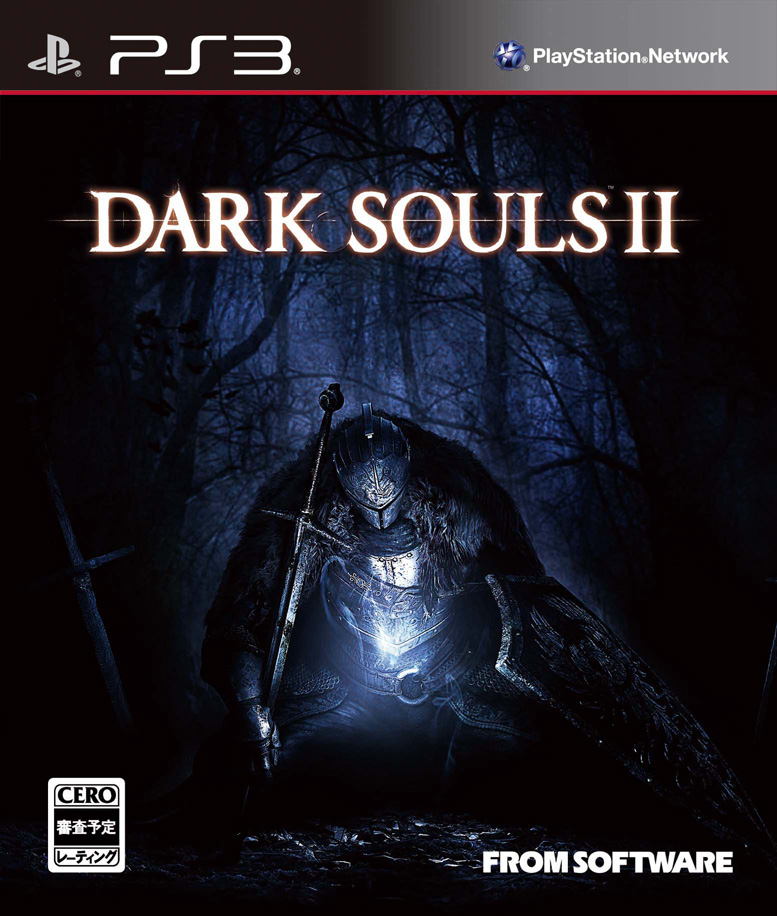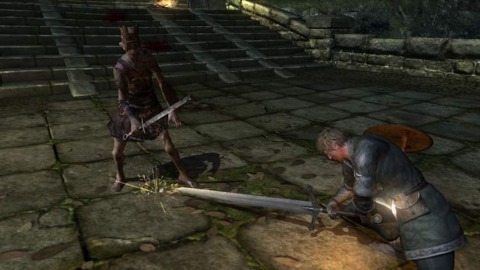The Paradox of Dark Souls
By thatpinguino 13 Comments
Clunky, difficult, obtuse, slow, and glitchy: these terms have doomed many a game to the bargain bin and not-top-10 lists across the world. These exact terms also describe the Souls franchise, from Demon’s Souls to Dark Souls to Dark Souls II. Now many of us who have played and enjoyed the games in this franchise have come to terms with these… disagreeable portions of the game, but they certainly exist and in the moment they can drive you batty. These games get under your skin; make you question their fairness, make you curse, and often employ cheap deaths and gimmicks that are often the marker of a lesser product. So why do so many people love these games? Why do so many people put up with the gotcha moments and the nonsense? Many people say it is because the games are “hard but fair” or that they are “rewardingly difficult,” but I would argue that is only true when you get over the initial knowledge hump and stop dying constantly. There are countless other games that are brutally rewarding, but I think that the fact that there is a passionate fan-base that allows the Souls franchise to have a passionate fan-base.

Paradoxical I know, but I believe that the Souls franchise has prospered because it directly encourages its most invested fans to share their knowledge with other players through messages and phantoms or lord their power over less knowledgeable players through invasion. The Souls franchise provides its players with a blank canvas of systems and story as well as the means to share their expertise with others. The games provide an outlet for both the constructively and destructively inclined to show off in ways that other difficult games do not. This allows for the Souls experts to bring Souls neophytes up to speed in-game, rather than through purely supplemental reading. You don’t have to go to an external wiki for hints and tips like you do for The Binding of Isaac or FTL. Now that isn’t to say that in-depth Souls info does not exist, when you add in all of the Souls wikis, faqs, and websites there are more free info treasure troves than just about any cult-classic series out there, more than enough info to get new players up to speed. However, the games themselves actually provided a jump start to a community with their online features and housed them in a game that is 90% info and 10% execution when it comes to succeeding.
In the Souls games much of the challenge is derived by facing the unknown and falling to unexpected attacks or patterns. For example, in every Souls game one of the first grunt enemies is a zombie with a broken sword who flails wildly whenever the player approaches before calming down and then throwing one last, unexpected stab. Now a Souls veteran would know to wait until the enemy is completely done with its attack before engaging; however, a new player could easily be fooled by this early enemy’s deceptive animation into taking a hit or two. Furthermore, most of the enemies in the Souls series are slow and ponderous with huge attack windups that are easily avoidable by someone with a grasp of the control scheme and a little familiarity with action games. Therefore, simply knowing what your enemy is going to do and what your character can do are huge portions of the Souls experience and as such the game lends itself to large communal information sharing, in-game and out.

On top of the ease of communication that the Souls series affords its players, the Souls franchise has built a reputation for difficulty and reward that has allowed it to draw in even more players seeking a challenge. Beating a Souls game has become a sort of badge of honor for its players and at this point almost everyone who follows the game industry knows it. The series either ushered in the current wave of difficult-but-fair games (Super Meat Boy, The Binding of Isaac, FTL, and their buddies) or it popped a wheelie on the zeitgeist and came out at just the right time. The recent acceptance of gameplay mechanics like frequent death and deliberate pacing by a growing portion of the gaming audience has allowed the Souls series to thrive in its own niche. Rather than sanding down some of its rough edges with every iteration, it seems like the Souls games just re-arrange their edges and fashion a few new ones to keep people on their toes. While much of the industry was migrating towards ease of entry, ease of play, and ease of understanding the Souls series helped to usher in a design backlash that is currently saturating the indie game market.
The Souls series is far from perfect, but it provides enough of a sandbox and strong enough gameplay to hold up to repeated playthroughs and gameplay styles. However, without its embrace of online play and its position as a bastion of difficulty a-midst a plain oatmeal sea of modern hold-your-hands-and-feet game design, the Souls series could have easily fallen by the wayside. This series is a perfect product for its time: a deeply connected experience in a social era and a challenge in a time where real challenges in games are few and far between.
